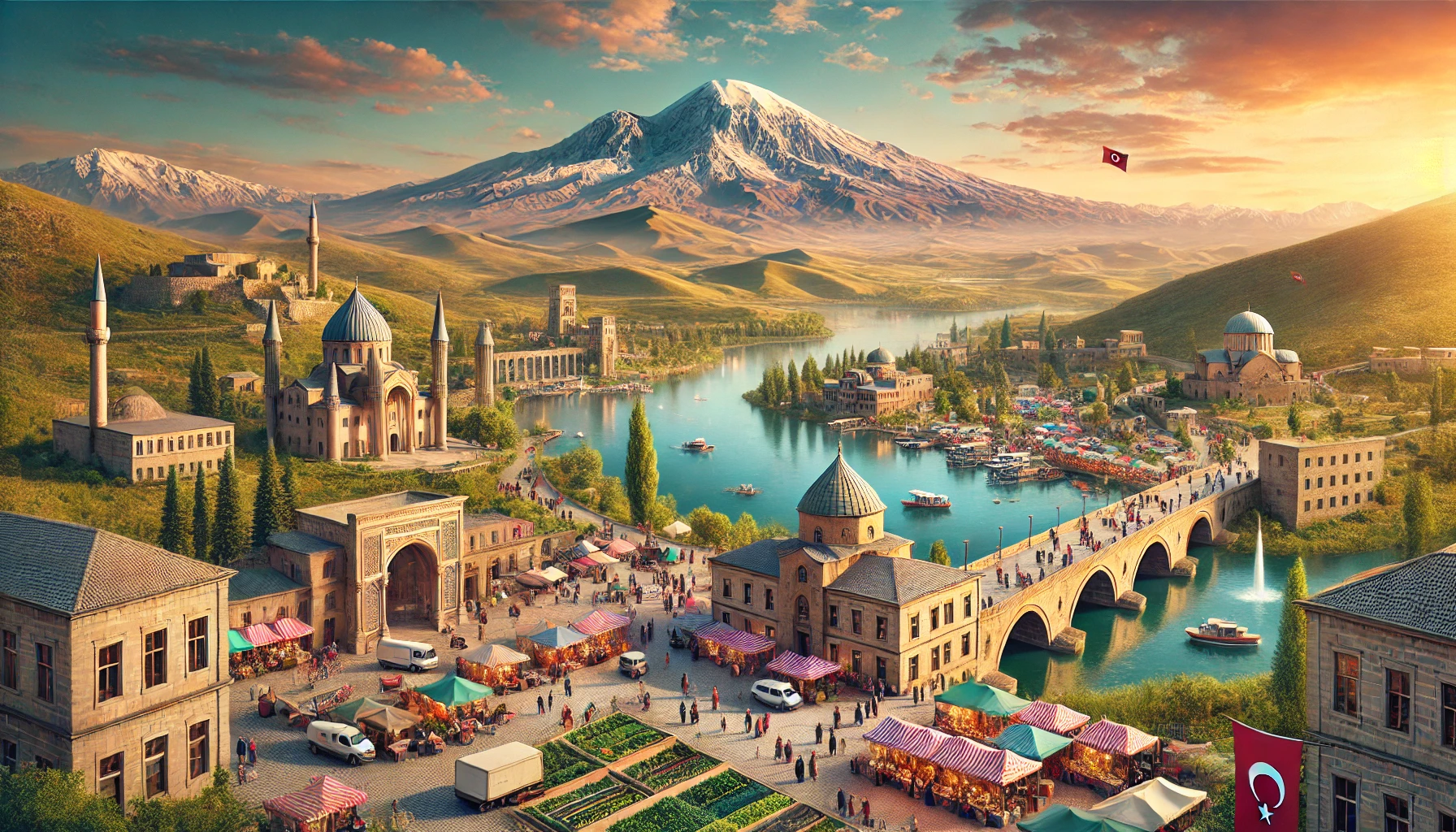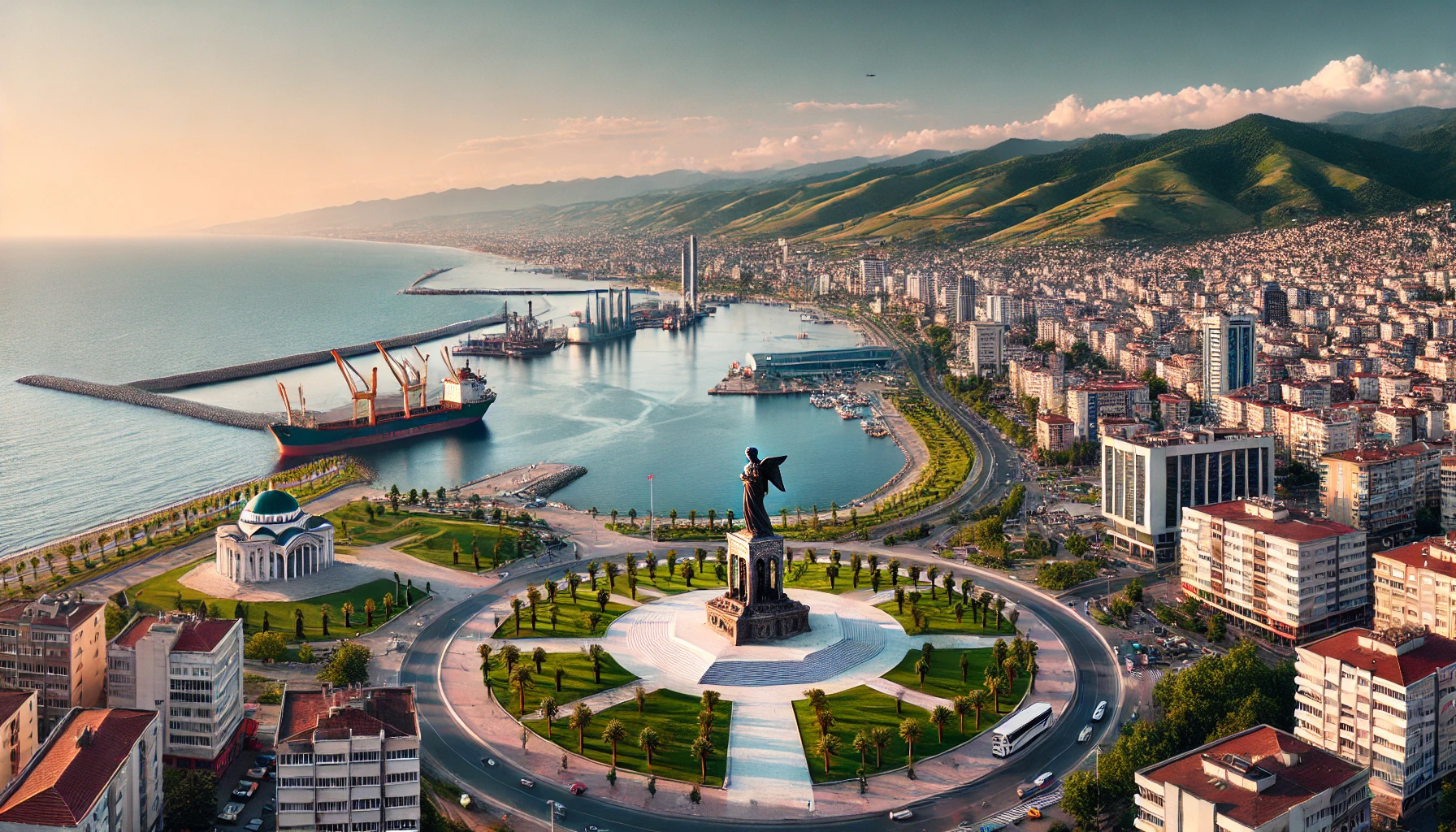All About Turkey
Turkey, a country straddling both Europe and Asia, offers a unique blend of rich history, diverse culture, and stunning landscapes. From the bustling streets of Istanbul to the serene beaches of the Aegean and Mediterranean coasts, Turkey has something for every traveler. In this comprehensive guide, we’ll take you on a journey through the various facets of this fascinating country. Whether you’re planning your first visit or you’re a seasoned traveler looking for new experiences, this article will provide you with all the information you need to make the most of your trip to Turkey.
Historical Significance
Turkey’s history spans thousands of years, making it a treasure trove for history buffs. From ancient ruins to Ottoman palaces, the country offers a glimpse into many past civilizations.
Ancient Ruins
Turkey is home to some of the world’s most significant archaeological sites. The ancient city of Ephesus, once a bustling Greek and Roman hub, boasts well-preserved ruins, including the magnificent Library of Celsus and the Great Theatre. Another must-visit is Troy, immortalized in Homer’s Iliad, where you can explore the remnants of the legendary city.
Ottoman Heritage
The Ottoman Empire’s influence is evident throughout Turkey, particularly in Istanbul. The Topkapi Palace, once the residence of Ottoman sultans, offers a fascinating insight into royal life. The Blue Mosque, with its stunning architecture and intricate tilework, is another testament to the grandeur of the Ottoman era.
Vibrant Cities
Turkey’s cities are vibrant and full of life, each offering its own unique charm and attractions.
Istanbul
Istanbul, the country’s largest city, is a melting pot of cultures and a city that seamlessly blends the old with the new. Wander through the historic Sultanahmet district, home to iconic landmarks such as the Hagia Sophia and the Basilica Cistern. Don’t miss a stroll through the Grand Bazaar, one of the world’s largest and oldest covered markets.
Ankara
As the capital of Turkey, Ankara is the political heart of the country. Visit the Anıtkabir, the mausoleum of Mustafa Kemal Atatürk, the founder of modern Turkey. The Museum of Anatolian Civilizations offers a comprehensive overview of the region’s history, with artifacts dating back to the Paleolithic era.
Natural Wonders
Turkey’s diverse landscapes offer a wealth of natural beauty, from pristine beaches to dramatic mountain ranges.
Cappadocia
Cappadocia is famous for its otherworldly landscapes, characterized by unique rock formations and fairy chimneys. The region is best explored by hot air balloon, offering breathtaking views of the surreal terrain. Don’t forget to visit the Göreme Open-Air Museum, a UNESCO World Heritage site, featuring rock-cut churches with stunning frescoes.
Pamukkale
Pamukkale, meaning “Cotton Castle” in Turkish, is renowned for its stunning white terraces of travertine, formed by mineral-rich thermal waters. The nearby ancient city of Hierapolis, with its well-preserved ruins and impressive theater, adds to the allure of this natural wonder.
Culinary Delights
Turkish cuisine is a feast for the senses, offering a rich array of flavors and dishes that reflect the country’s diverse cultural heritage.
Traditional Dishes
Sample traditional Turkish dishes such as kebabs, mezes, and baklava. Be sure to try the famed Turkish breakfast, a lavish spread featuring cheeses, olives, eggs, and fresh bread. For a unique culinary experience, indulge in a Turkish delight, a sweet treat made from sugar and starch, often flavored with rosewater or lemon.
Street Food
Turkey’s street food scene is vibrant and varied. Savor a simit, a sesame-coated bread ring, as you stroll through the streets. Don’t miss the opportunity to try a döner kebab or a gözleme, a traditional Turkish flatbread filled with cheese, spinach, or meat.
Cultural Experiences
Turkey’s rich cultural tapestry is evident in its traditions, festivals, and daily life.
Whirling Dervishes
The Whirling Dervishes, part of the Mevlevi Order, perform a mesmerizing dance that symbolizes the spiritual journey of man. Witnessing a Sema ceremony, with its hypnotic music and graceful movements, is a truly unique experience.
Turkish Baths
A visit to a Turkish bath, or hammam, is a must for a truly authentic cultural experience. These traditional baths offer a relaxing and rejuvenating experience, with a series of cleansing rituals that leave you feeling refreshed and invigorated.
Adventure Activities
For thrill-seekers and outdoor enthusiasts, Turkey offers a wide range of adventure activities.
Paragliding in Ölüdeniz
Ölüdeniz, with its stunning Blue Lagoon and pristine beaches, is one of the best places in the world for paragliding. Soar above the turquoise waters and enjoy panoramic views of the coastline and surrounding mountains.
Hiking the Lycian Way
The Lycian Way, a long-distance hiking trail along the southwestern coast of Turkey, offers breathtaking views and a chance to explore ancient ruins and traditional villages. The trail is well-marked and suitable for hikers of all levels.
Coastal Beauty
Turkey’s extensive coastline is dotted with beautiful beaches and charming seaside towns.
Bodrum
Bodrum is a popular destination for beach lovers and nightlife enthusiasts alike. The town boasts stunning beaches, crystal-clear waters, and a lively atmosphere. Explore the Bodrum Castle, which houses the Museum of Underwater Archaeology, or take a boat trip to discover the hidden coves and islands nearby.
Antalya
Antalya, known as the “Turkish Riviera,” offers a perfect blend of history and natural beauty. Relax on the golden sands of Lara Beach, or explore the historic old town of Kaleiçi, with its narrow streets, ancient buildings, and picturesque harbor.
Unique Attractions
Turkey is home to many unique attractions that are sure to leave a lasting impression.
Mount Nemrut
Mount Nemrut, a UNESCO World Heritage site, is famous for its giant stone heads and statues, which date back to the 1st century BC. The summit offers stunning views, especially at sunrise and sunset, when the statues are bathed in golden light.
The Underground Cities of Cappadocia
Cappadocia’s underground cities, such as Derinkuyu and Kaymakli, offer a fascinating glimpse into the region’s history. These multi-level cities, carved into the soft volcanic rock, were used as shelters during times of invasion and provide an intriguing insight into ancient life.
Practical Tips for Travelers
To make the most of your trip to Turkey, here are some practical tips to keep in mind.
Currency and Payment
The currency in Turkey is the Turkish Lira (TRY). While credit cards are widely accepted in cities, it’s a good idea to carry some cash for smaller establishments and in more remote areas.
Language
Turkish is the official language, but English is widely spoken in tourist areas. Learning a few basic Turkish phrases can enhance your travel experience and help you connect with locals.
Safety
Turkey is generally a safe destination for travelers. However, it’s always wise to stay informed about current events and follow local advice. Be cautious with your belongings in crowded areas and use reputable transportation services.
Conclusion
Turkey is a captivating destination that offers a rich tapestry of history, culture, natural beauty, and adventure. Whether you’re exploring ancient ruins, savoring delicious cuisine, or soaking up the sun on a pristine beach, Turkey has something to offer every traveler. With its unique blend of East and West, modernity and tradition, Turkey is sure to leave a lasting impression and create unforgettable memories. So pack your bags and get ready to discover all that this incredible country has to offer!





